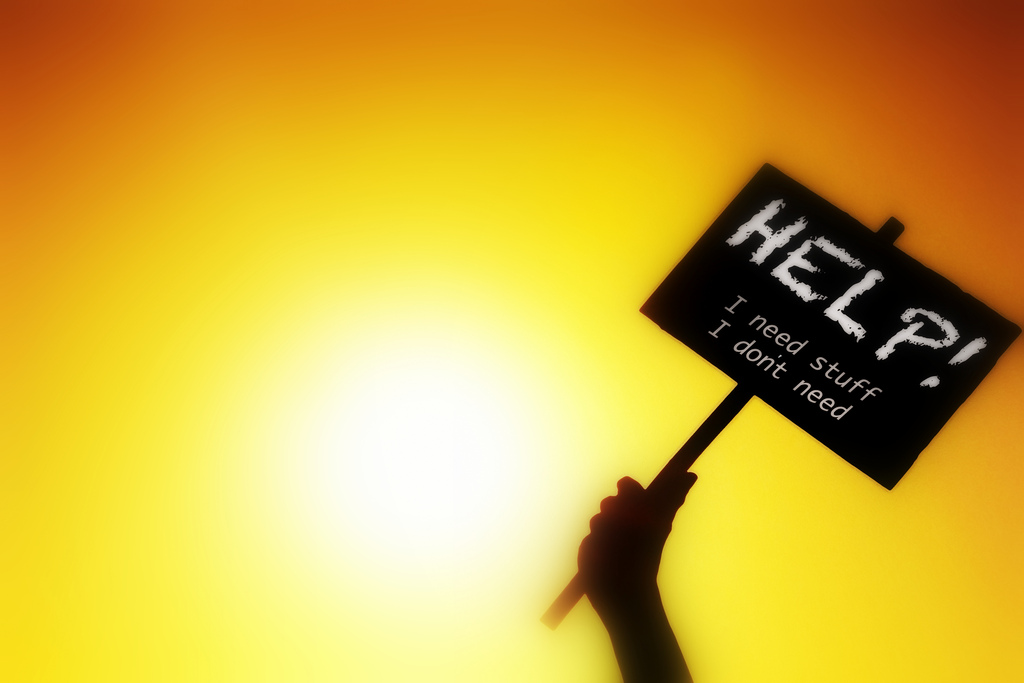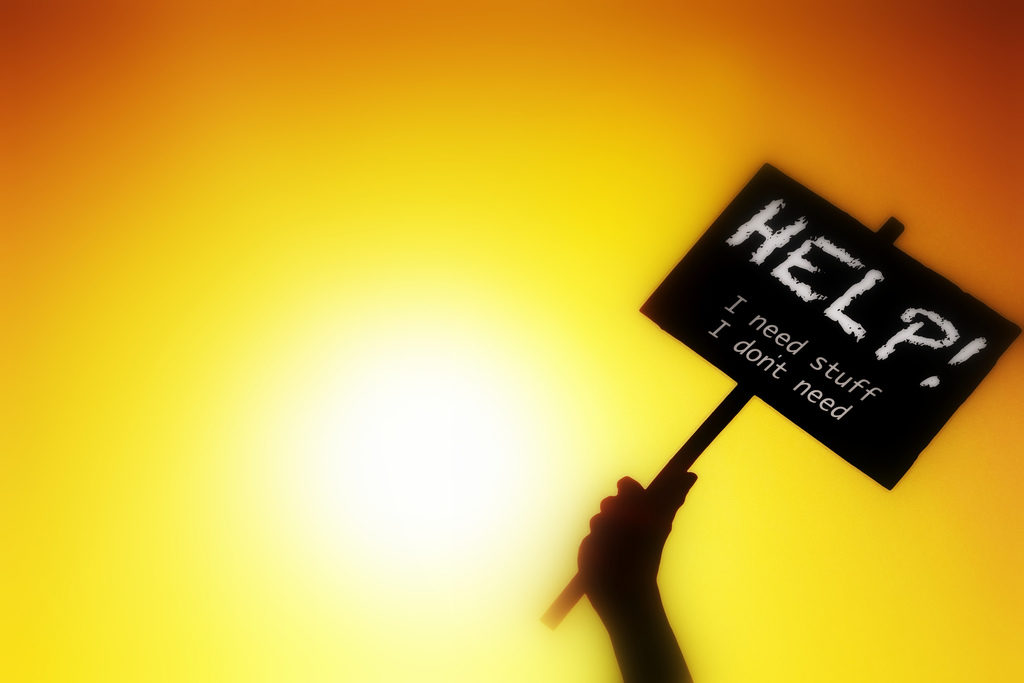
Everything That Remains
I just read Everything That Remains, a memoir by Joshua Fields Millburn & Ryan Nicodemus, or “The Minimalists” as they’re more often called.
Minimalism is not a new concept, but it seems to be enjoying a cultural moment right now, and the overarching premise is pretty simple:
- Get rid of stuff you don’t need
- Stop buying new stuff
- Focus instead on passions, people, and experiences that are important to you
- Enjoy a more meaningful, happier life

Am I a Minimalist?
Whether intentional or not, I think I’ve always been something of a minimalist at heart. I’ve never been one to buy clothes or fancy gadgets just for the sake of owning them. You’ll never find me in line waiting for the new iPhone release, and the mall is generally one of my least favorite places on earth. I’m not sure if it was ever something that I thought about consciously growing up, but throughout most of my life, I haven’t placed a great emphasis on material wealth.
I’ve always considered living simply to be a good thing. And even though I grew up in a financially secure environment, I think my attitude towards material possessions has always been in large part out of necessity rather than choice.
Life As a Touring Musician
I spent much of my early twenties working as a full-time musician, touring around the country playing drums in various bands. I traveled all over the states and Europe many times, usually visiting a different city every night. I lived out of a suitcase and slept in vans and hotels and the homes of random strangers.
When you live out of a suitcase, minimalism isn’t really a choice. You bring what you need and leave the rest at home. I quickly realized that I never used most of the crap I brought on the road with me, and I became pretty good at packing. Less stuff meant less to keep track of, which meant fewer annoyances when living in cramped quarters with the same 4 or 5 people for weeks at a time.
In between tours, like many 20-somethings, I lived in a series of cheap apartments with multiple roommates. To save money on rent, I would sometimes sublet my room to friends or random Craiglist strangers, sleeping on couches when I wasn’t on the road. As a result, I jettisoned everything but the bare essentials.
My life looks quite a bit different now.
Mo Money Mo Problems
I’ve entered my 30s, and these days I live what most people would deem a fairly normal existence. I’ve traded the road for an office, the van for a spacious two-bedroom, and the messy roommates for a girlfriend that I love living with.
To be clear, this isn’t some nostalgic piece of longing for my reckless youth. I love my life, and I feel very grateful that I was able to transition from wistful vagabond to “normal citizen” without too much pain. Many people are not so lucky. Most touring musicians I know really struggle to find any semblance of stability after life on the road loses its luster. I feel really thankful.
Which brings me back to stuff, and my relationship to it.
It shouldn’t come as a surprise that as a 30-year-old man living in a two-bedroom apartment with my girlfriend, I have accumulated some belongings. After never owning so much as a futon throughout most of my twenties, I now own real furniture. It belongs to me and my girlfriend. If we leave this apartment, it will have to come with us, or we will have to figure out what to do with it.
That probably doesn’t sound like a big deal, but it’s a cause of anxiety for me.
Did I buy the right brands? Did I get ripped off? How long will this furniture last before I need new furniture? Will I have to hire movers if we leave this place, or can I lug this sleeper sofa up the stairs by myself?
None of this is really a problem. And I bet a lot of people feel the same way when putting together a home for the first time. But I still find myself questioning every purchase, wondering if I’m buying into the consumer-culture that I’ve never wanted to be a part of.
How Much Is Enough
Furniture for my apartment is one thing, but then this year, for the first time in my life, I bought a bunch of stuff on Black Friday.
I bought a wide-angle camera lens because Amazon was having a great sale. I’ve recently gotten into astrophotography, and everyone says this lens is one of the best for taking photos of the Milky Way. I got a good deal, and I think it’s a purchase that will add legitimate value to my life. No problem. I feel good about that one.
But then I threw in a couple pairs of shoes on the Amazon order too. I typically wear the same pair of beat-up black and white Pumas every day, but I decided that my footwear could use a little more shine.
Now I have 4 pairs of shoes to choose from!
I have to admit, I’m not sure that my new shoes have added much value to my life. Look good feel good is a popular saying, but I don’t know. I tell myself It’s a rare indulgence. I shouldn’t feel bad. I’ve worked hard to get where I am, and if I want some variety in my footwear, then I should buy some new shoes, damnit!
But isn’t that how it starts? One day it’s a few pairs of shoes, the next day you’re that crazy guy staying up until 3 AM watching infomercials and racking up credit card debt.
Finding a Balance
As I’ve gotten older and started to make a bit of money, I’ve realized that I have to put more thought into what I buy. Otherwise, it’s easy to get carried away.
I try to ask myself a simple question before every purchase.
Does this add value to my life?
It’s easy to get trapped by excess. You hear it over and over from personal finance guru-types. Don’t upgrade your lifestyle along with your paycheck. Don’t upgrade your car and your house to match your salary. That’s how you get stuck.
I know that’s what I DON’T want. I’ve always been willing to pay for experiences like great food, travel, time with friends and family, and unique events. I’m not going to apologize for that. But when it comes to material purchases, I’ll continue to ask myself that simple question.
Like Bill Belichick says, it’s all about value.
To Me, Money Should Mean Freedom
Whether this is the peak of my earning potential or just the tip of the iceberg, I want money to make me MORE free. I don’t want to smother myself under a blanket of consumption.
And that doesn’t mean I don’t value money.
I hope I continue to make more money as I get older. I hope I wind up filthy rich! I hope I can provide for my future family without ever having to worry about it.
But I DON’T want to trap myself in order to keep up with an excessive lifestyle.
It’s a delicate balance. Am I buying these shoes because I feel like I need them to fit in, or do I genuinely think they will add value to my life? Will my mornings honestly be better with this new blender? Will this new TV legitimately make my life more awesome?
If the answer is yes, then by all means, I will go ahead and swipe my card, and I won’t feel bad about it.
But I WILL continue to stop and think about it first.
To me, that’s an important part of a purposeful life.